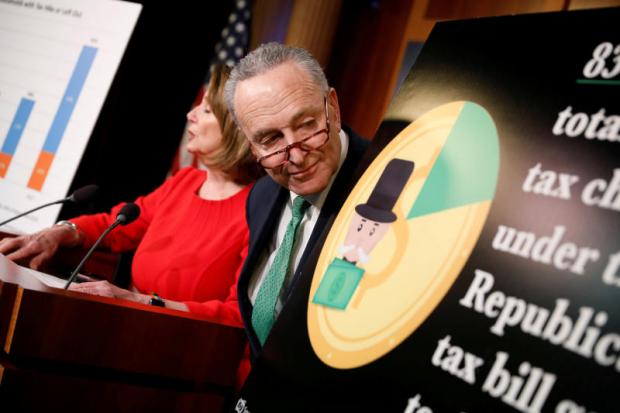
Liberals are saying that the tax legislation is tilted toward the rich. Conservatives are denying it. In large part this isn't an argument about what the numbers are; it's a disagreement about how to characterise the same numbers.
That disagreement might be easier to see by looking at a simple example: a government with two taxpayers. One makes US$100,000 (3.3 million baht) and the other $50,000. They live under a progressive tax code: The high earner pays 20%, and the low earner 10%. The government finds a way to economise, and cuts both bills by 10%.
Is this a fair tax cut? Does it make the tax code more progressive, make it less progressive, or leave its progressivity unchanged?
Before the tax cut, the high earner paid $20,000 in taxes and the low earner $5,000. So the high earner paid 80% of all tax dollars and the low earner 20%. Afterward, the high earner will pay $18,000 and the low earner $4,500. The proportions are unchanged: The high earner still pays 80% of all taxes, the low earner 20%, and each gets the same percentage of the tax cut as they pay. By this measure, the tax cut has not affected progressivity.
Consider another measure. Before the tax cut, the high earner's after-tax income is $80,000 and the low earner's is $45,000. Afterward, the high earner has $82,000 and the low earner has $45,500. The high earner's after-tax income has increased by 2.5%, and the low earner's has increased by 1.1%. Before, the high earner's after-tax income was 78% higher than the low earner's; afterward, it's 81% higher. By this measure, the tax cut has made the tax code less progressive.
Which measure is the right one? It depends on what's valuable about progressivity. If the purpose of a progressive tax code is to divide the burden of government so that rich people pay a larger percentage, then the new code serves it equally well as the old one. If the purpose of progressivity is to make society more economically equal, on the other hand, it doesn't. The new tax code makes the country a little less economically equal.
Any proportional cut in a progressive tax code's rates will have this effect. The progressive code slightly reduces income inequality. A proportional reduction in all taxes weakens its inequality-fighting power.
It's not surprising that liberals tend to think about progressivity in terms of economic inequality and conservatives in terms of the burden of government. Thus a lot of liberal analyses of the tax cut emphasise that it generally raises after-tax income more for high earners than for low earners. Conservative analyses tend to point out that lower earners will generally see their tax bills decline by the same percentage that higher earners will (and sometimes will see them drop more).
Neither side is distorting the truth. They're looking at the same thing from different angles. - Bloomberg View
Ramesh Ponnuru is a Bloomberg View columnist. He is a senior editor at National Review, visiting fellow at the American Enterprise Institute and contributor to CBS News.
